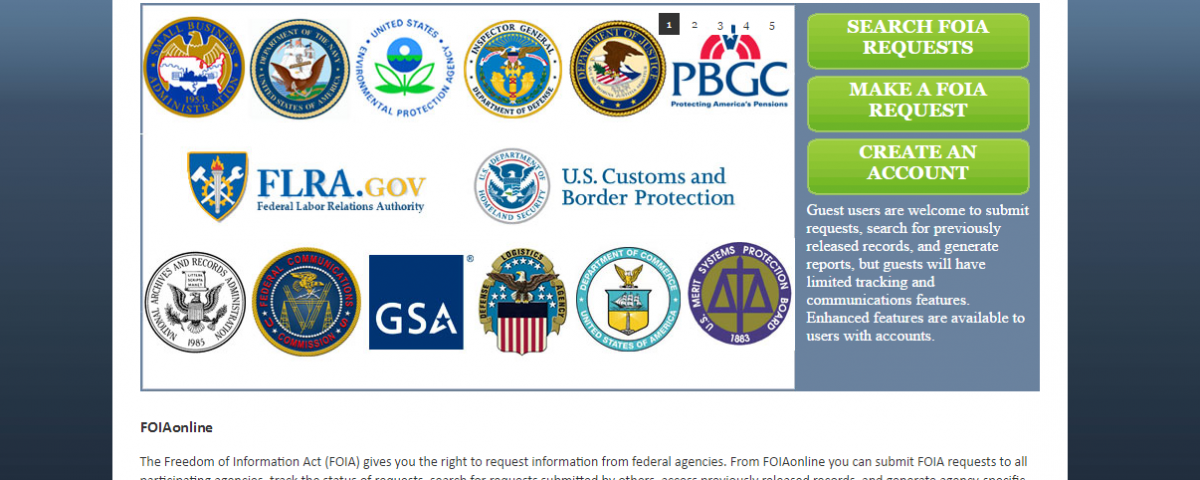- Have any questions?
- 325-261-3910
- collinsreports@gmail.com
Begrudgingly, I’ll test drive FOIAonline

The runaround, the spokesman
January 28, 2017
Applause due for APHIS blowback
February 10, 2017Begrudgingly, I’ll test drive FOIAonline

FOIAonline's front page.
Okay, okay. I’ll try FOIAonline.
The U.S. government has been pushing hard recently for requesters to file FOIAs through its own centralized portal, known as FOIAonline, instead of sending requests from personal or work email accounts.
Since I began the 1FOIRaDay project this year, I’ve been directed by government FOIA officers to the online portal several times. In one of those instances, it was by U.S. Customs and Border Protection in the form of an automated email response. My request, sent Jan. 30, sought agency communications regarding the illegal detainment of refugees under a Trump administration executive order.
The email bounced back. CBP’s FOIA office said I needed to file using FOIAonline.
My first thought: No way. The agency had received a legal request for documents under the Freedom of Information Act, I thought, and it is obliged to respond. I should be able to write a request on a piece of toilet paper and still get a response. I’m not using your damn portal.
I should mention now that I had not, at that point, ever filed a request through FOIAonline. For all I knew it could have been the magical conduit through which all requests are processed within statutory time limits, where all requesters are awarded fee waivers and nary a (b)6 exemption is to be found.
My justification, I suppose, is that I’d had a bad experience with a government FOIA portal before. While writing for the the Times Record News, I had filed a FOIA request for documents held by a little-known Department of Defense agency that screens wind energy projects proposed near military bases.
The request had made some movement along the Pentagon’s notoriously slow FOIA track when I decided to leave the newspaper to pursue journalism as an independent reporter. When I returned to the portal I used to file the request, I couldn’t find the correct password to sign in, and I couldn’t reset the password because I no longer had access to the Gannett email account registered to the portal.
I’ll probably never get that information. Is that partly my fault? Yes. Is it partly the government’s fault for requiring requesters to maintain a username and password to request documents from a single obscure federal agency? Yes.
I’m trying to approach FOIAonline without extreme prejudice. Though not all agencies may be queried from it, some important agencies are listed as respondents, including the Environmental Protection Agency, the Department of the Navy, the Federal Communications Commission and Customs and Border Protection.
A few members of a Syracuse University FOIA listserv say good things about it, as does an Associated Press investigative journalist. The portal also posts documents released as part of previous records requests, which could be useful.
I used FOIAonline for the first time Jan. 31 to request the emails of former U.S. Attorney General Sally Yates, whom President Donald Trump recently fired.
We’ll see how it goes.


